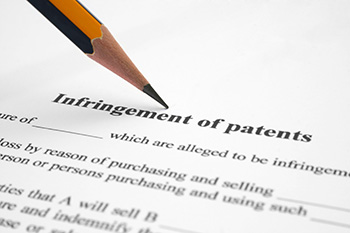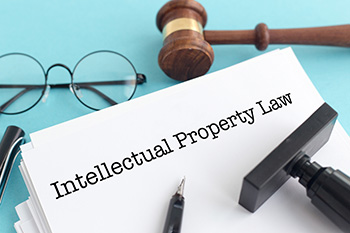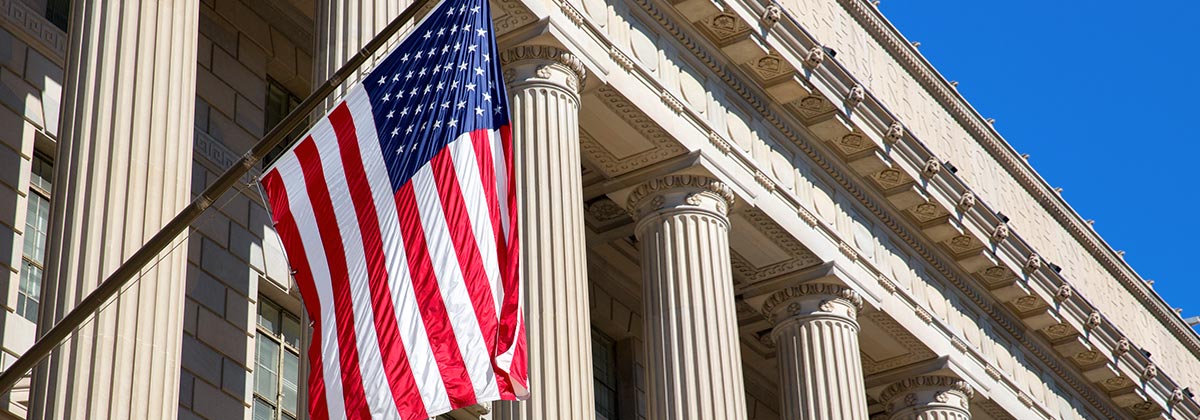In May, the United States Supreme Court made it somewhat less expensive and easier for businesses to defend against what are often “strong-arm” patent lawsuits. The Supreme Court thereby made well-drafted patents, with strong claims and supportive specifications, much more valuable. At first glance, the Court’s decision in TC Heartland LLC v. Kraft seems purely technical and of little interest to most business owners.
 However, that perception is mistaken. Today’s small businesses compete through the web and reach consumers outside their home region. Regardless of whether you infringe a patent, being sucked into a patent lawsuit is bad enough. The cost of defense can put you out of business. That cost goes up exponentially when you are forced to defend the lawsuit in a distant jurisdiction where you have limited contact and the procedures are stacked in favor of the patent holder.
However, that perception is mistaken. Today’s small businesses compete through the web and reach consumers outside their home region. Regardless of whether you infringe a patent, being sucked into a patent lawsuit is bad enough. The cost of defense can put you out of business. That cost goes up exponentially when you are forced to defend the lawsuit in a distant jurisdiction where you have limited contact and the procedures are stacked in favor of the patent holder.
Fights over venue often determine the outcome of a case. I can think at least one major case I fought that was properly and cost effectively resolved in my client’s favor because I rushed to the local federal court and filed a Declaratory Judgement case regarding Patent Infringement as soon as I knew there was an unresolvable dispute. My foresight prevented my client from being dragged into court across the country to defend a weak patent, and it required the foreign corporation to litigate here where it recognized its claims were easily avoided. The core issue was venue, and venue matters!
Historical Pursuit of Patent Infringement Claims
Federal law includes a specific venue provision for patent litigation, and a general venue provision for most other lawsuits. The venue statutes protect defendants from being sued in distant areas where they have no real relationship by forcing plaintiffs to file cases where the defendant has a relationship with the forum. The general venue provision is much more permissive in terms of where a case can be filed than the patent venue statute. Relying on the general provision, Courts had previously determined that patent holders filing suit could choose among many venues.
This interpretation made it easier for patent holders to file suit without regard to where the defendant corporation is located. While that might seem beneficial for small businesses seeking to enforce their patent rights, it is often unfair to a small business forced to defend themselves in a distant court. However, this unfairness becomes even more one-sided when you realize that a choice of venues allowed the patent holder to file suit in a “friendly” jurisdiction, where the patent holder has a greater expectation of success. That allowed patent holders to rely on weak patents simply because they had an unfair advantage procedurally and defendants found themselves forced to settle because of they were being sued in a difficult venue far away.
Using the freer interpretation of venue, the Eastern District of Texas became known as a Patent Plaintiff’s Haven. The Texas Federal Court set up local rules simply to favor patent plaintiffs and get more patent cases filed there. Whole businesses blossomed to support the teams of lawyers flying in; including hotels, restaurants, conference centers, etc. A patent plaintiff’s litigation hub was created in Marshall, Texas. One in four patent lawsuits filed in the United States were filed in Marshall, Texas. Whatever else people might know about Marshall, Texas, it certainly is not known as the “Silicon Saddle!” Why should a small business be forced to defend themselves in Marshall, Texas. It seems patently unfair.
Venue in Patent Infringement Cases
The patent-specific venue provision was meant to protect defendants by requiring patent holders to bring lawsuits in appropriate jurisdictions. It allows for the filing of an infringement suit in “the judicial district where the defendant resides, or where the defendant has committed acts of infringement and has a regular and established place of business.” A prior ruling interpreted “where the defendant resides” to include only the jurisdiction in which the defendant is incorporated.
In Heartland, the Supreme Court ruled that the general venue statute does not apply to patent infringement cases, and that companies and individuals protecting patent rights are bound by the much more restrictive terms of the patent-specific venue statute. The result is that many patent infringement claims may now only be filed in the jurisdiction in which the defendant is incorporated.
Venue Restrictions and Your Patent Rights
One positive impact of the ruling is that it will help shield companies from false or frivolous infringement claims. The investment required to bring such a suit will be greater and the plaintiff will not be able to select a venue simply based on the likelihood of success. The venue should have a relationship to the case and where the defendant is conducting business.
 While a small business may find it considerably more difficult to pursue patent infringement litigation when that litigation may take place far from the patent holder’s place of business, the small business defendant is better protected from weak patent claims. Further, if the defendant is only conducting business on a limited basis in a foreign jurisdiction, the patent holder may want to evaluate the cost benefits of filing a federal patent infringement lawsuit in the first place. How big will your recovery actually be? That evaluation also includes evaluating how strongly your claims and specification were drafted in the first place.
While a small business may find it considerably more difficult to pursue patent infringement litigation when that litigation may take place far from the patent holder’s place of business, the small business defendant is better protected from weak patent claims. Further, if the defendant is only conducting business on a limited basis in a foreign jurisdiction, the patent holder may want to evaluate the cost benefits of filing a federal patent infringement lawsuit in the first place. How big will your recovery actually be? That evaluation also includes evaluating how strongly your claims and specification were drafted in the first place.
Before considering whether to file suit simply from an emotional decision, a patent holder would be well served by obtaining a careful infringement explanation that makes sense to you. Don’t simply rely on the feeling that your lawyer has. Your lawyer should be able to clearly explain the infringement case to you; element by element. They’re going to have to do it for the judge and jury, and those folks are not invested in the outcome!
You may find out that your patent was not well drafted, that your claims are not infringed or that they clearly read on earlier “Prior Art” that makes them invalid. Often, the patent holder does not realize that their claims have limitations that help your competitor design around and avoid infringement. These limitations may have been inserted to get a quick and inexpensive allowance which you applauded at the time, but narrowed the scope of your patent. The choice of venue to a favorable jurisdiction will no longer compensate for a weak patent. The patent application process and a well-drafted patent with strong claims just became that much more valuable. Sherman IP’s patent attorneys regularly take over applications from other counsel where the claims need to be redrawn to properly protect the client’s invention.
It is important for patent holders to carefully weigh all of the obstacles and costs of pursuing a case, as well as the likelihood of success in the case before deciding to bring a claim for patent infringement. The choice to file a federal lawsuit for patent infringement should be a very sobering decision; not to be taken lightly or emotionally. It will affect your business and the business of your competitor. It will be costly and consume your time. The decision should not be driven simply by the fact that you might be filing in a favorable jurisdiction. If your lawyer is telling you differently, then you should beware.
The new venue requirement will play a role in decisions regarding patent enforcement. It ought to play a role in how you engage in the patent application process as well. Hiring a patent attorney that has substantial experience drafting claims and specifications, and negotiating the process at the patent office is key to defining your patent rights. If they do a good job, then your competitors will have to contend with your patents. If they do a poor job, then you will be unable to protect the market and customer base that you fought so hard to obtain. At Sherman IP we draft our applications with knowledge that our patents are being monetized and have supported some of the most well-known lawsuits and licensing agreements for some of the largest companies in the world.
Likewise, small businesses must recognize that patent rights are often critical to the success of their operations. They should protect and police those rights in an economically thoughtful manner with an eye towards protecting their technology and their market share.

